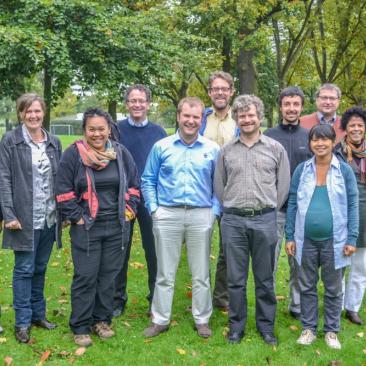The HCV-TWG will develop guidelines to provide direction and guidance for forest managers, certificate holders, and certification bodies on identification, management, monitoring, and conservation of each of the six HCV categories, which the FSC Principles and Criteria specifies as species diversity, intact forest landscapes (IFLs), ecosystems and habitats, critical ecosystems services, community needs, and cultural values. In addition, the TWG will guide the protection of IFLs by developing guidance for participatory value mapping – a protocol that will take into consideration what communities value most and that engages them in the process – and by developing indicators to address all elements of the 2014 Motion 65.
Because of the complexity of creating such guidelines, the HCV-TWG is composed of 11 experts representing Brazil, Canada, Chile, the Democratic Republic of Congo, Indonesia, Malaysia, Republic of Congo, Russian Federation, and the USA. The experts represent the global North and South, and all three chambers of FSC (economic, social, and environmental), and have different backgrounds related to all six HCVs, ranging from endangered species to IFLs, ecosystems, Indigenous Peoples, and culturally valuable sites.
“In order to address all HCV categories in detail, the HCV-TWG was divided in three subgroups according to the experts’ background: HCV 1–4 [environment], 5–6 [social] and IFLs,” says Dr Pasi Miettinen, working group coordinator at FSC. “The group made substantial progress on developing the approach for the concept of ‘scale, intensity, and risk’. This is a major theme, as tackling the risks to IFLs is key in addressing 2014 Motion 65.”
During the meeting, the HCV-TWG identified and reviewed supporting documents to clarify ambiguous or unclear concepts related to HCVs, and each subgroup agreed on a work plan and a schedule of meetings. The TWG also agreed to approach the FSC permanent Indigenous Peoples committee (PIPC) for organizing joint discussions and to ensure consistent respect of Indigenous Peoples’ rights within the FSC system. John Cathro, the drafter, will bring together the ideas of each subgroup and circulate a first draft of the IFL indicators, value mapping for IFLs, and the HCV guideline at a later date.
The HCV-TWG detailed a schedule for online meetings; the next one will be in mid-November. The HCV-TWG will continue to work via electronic communication until it meets again in 2016. Those who are interested in joining the Consultative Forum of the TWG, are encouraged to send their email contacts to Diana Franco (d.franco@fsc.org).

The following technical experts comprise the HCV-TWG:
- Cynthia Lu Chin, WWF, Malaysia
- Ngoya-Kessy Alain Marius, Brazzaville, Republic of Congo
- Brian Milakovsky, WWF, USA/Russian Far East
- Pablo I. Ramirez de Arellano, Arauco, Latin America
- Mikhail Karpachevskiy, Transparent World, Russia
- Chris Wedeles, SDG consultant, Canada
- Daniel Hall, Guide Environmental, USA
- Rosanne Van Schie, Wolf Lake First Nation, Canada
- Kapupu Diwa, Indigenous People, Congo Basin
- Isabel Garcia Drigo, Lead assessor, Rainforest Alliance, Brazil
- Dian Intarini, CIFOR, Indonesia
And acting as facilitators and coordinators are the following people:
- John Cathro, drafter
- Rodger O’Connell, facilitator
- Diana Franco, Project Officer
- Pasi Miettinen, Project Coordinator

